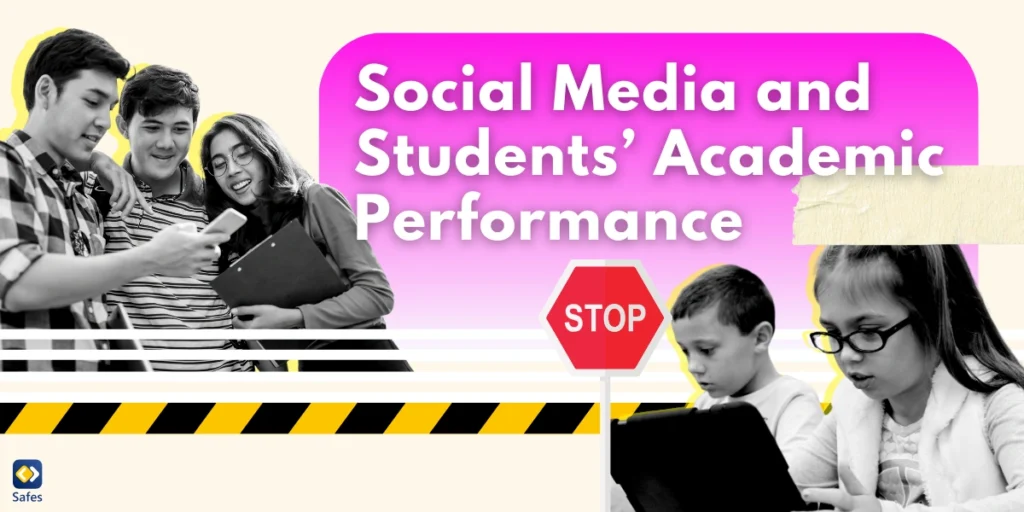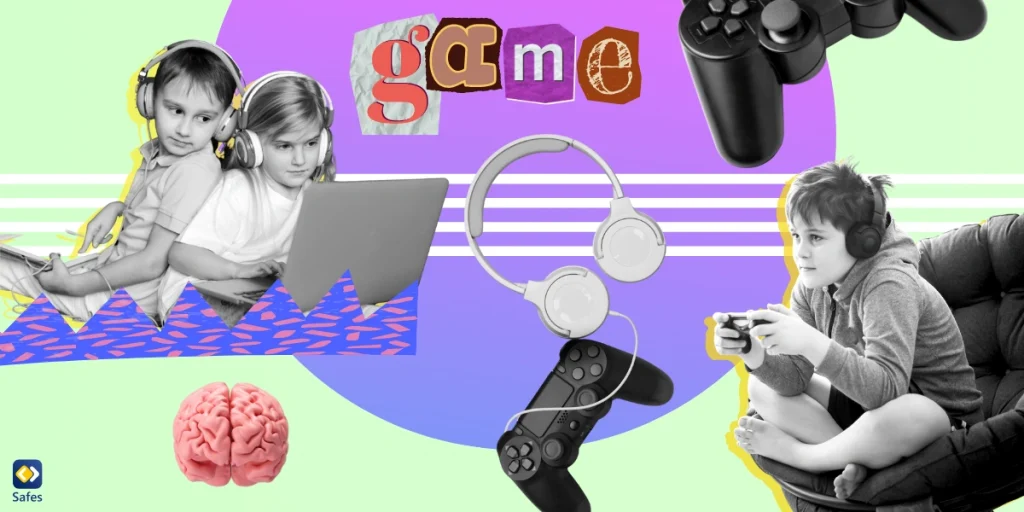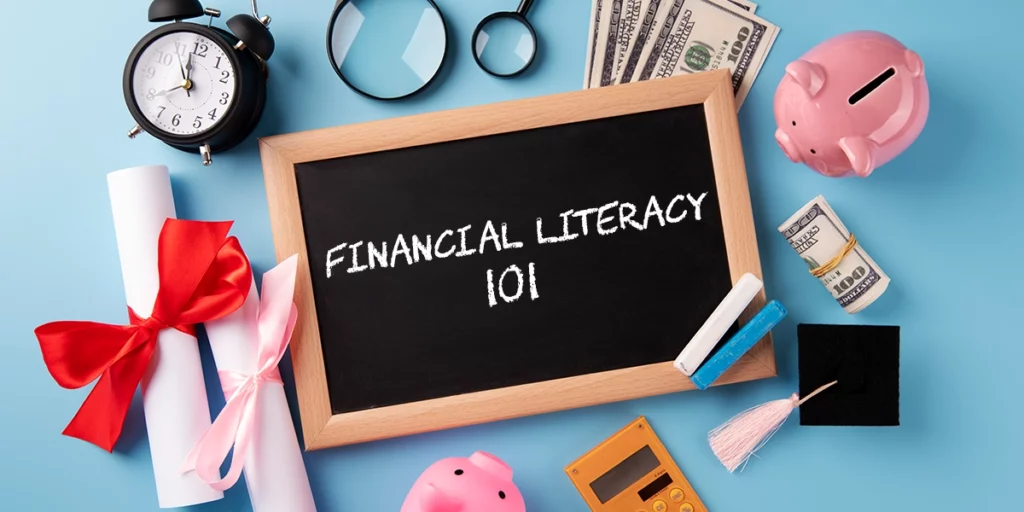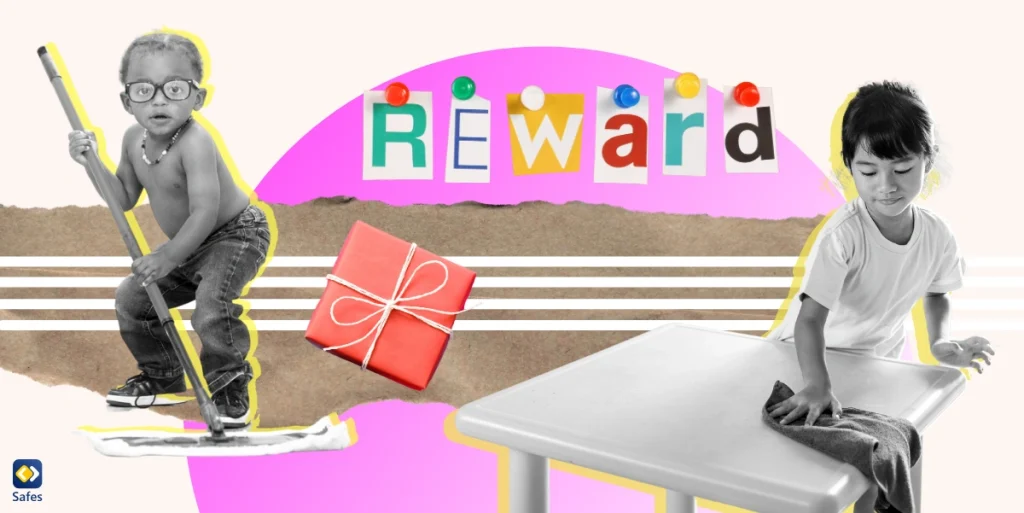Social media is deeply intertwined with the lives of students, influencing everything from social interactions to academic performance. While it offers opportunities for learning and connection, it also presents challenges that can significantly affect school outcomes. This blog explores the various dimensions of how social media impacts students’ academic achievements, focusing on time management, mental health, educational resources, and social pressures.
Download and Start Your Free Trial of the Safes Parental Control App
1. The Impact of Time Management and Distraction
Social media often becomes a significant distraction for students, consuming time that could otherwise be spent on homework, studying, or extracurricular activities. Platforms like TikTok, Instagram, and Snapchat offer endless streams of content, making it easy for teenagers to lose track of time. Research shows that students who spend excessive time on social media often struggle with completing assignments on time due to reduced focus and procrastination.
Additionally, multitasking with social media while studying can severely impact productivity and the quality of learning. Notifications and the temptation to check feeds interrupt the deep focus needed for complex subjects. Over time, this can lead to social media affecting grade statistics.
On the flip side, setting clear boundaries and time limits can mitigate these effects. Parental controls and apps designed to manage screen time help create a structured environment for students. These tools ensure that time spent on social media does not infringe on essential academic responsibilities.
Parents and educators can also play a role by encouraging students to develop self-discipline and time management skills. Regular schedules and designated study hours without digital interruptions can foster habits that improve academic outcomes.
2. Effects on Mental Health and Academic Engagement
One way social media affects education negatively is through affecting the mental health of students. This in turn affects their performance in school. Negative experiences such as cyberbullying, exposure to idealized lifestyles, and the fear of missing out (FOMO) contribute to anxiety and depression. These mental health issues can manifest in reduced concentration, absenteeism, and lower grades.
However, social media isn’t entirely detrimental. It provides platforms for emotional support and peer connection, which can bolster a student’s sense of belonging and confidence. For students struggling academically or socially, engaging in positive online communities can be a lifeline.
Parents should remain vigilant and maintain open communication about their children’s social media habits. Observing signs of distress and encouraging breaks from social platforms can help mitigate negative mental health impacts. Furthermore, schools can introduce digital literacy programs to teach students about healthy online behaviors and coping mechanisms for online stress. By fostering mental well-being, students are more likely to engage actively in their academic pursuits, displaying better focus, energy, and resilience.
3. Social Pressures and Academic Confidence
Social media fosters an environment where peer validation and comparison are central, impacting students’ confidence and school performance. The pressure to project a “perfect” life online often creates anxiety, leading some students to prioritize social validation over academics. Constant exposure to peers’ successes can exacerbate feelings of inadequacy, undermining self-esteem and academic motivation.
Conversely, social media can also empower students by providing platforms to share their academic achievements and talents. Participation in online competitions or showcasing educational projects can boost confidence and inspire others. Positive reinforcement through likes and comments from peers or educators can motivate students to excel in their studies.
Parental involvement is crucial in balancing these social pressures. Parents can educate their children about the difference between online appearances and reality, helping them develop a healthy perspective on social media. Encouraging students to focus on personal growth rather than external validation fosters resilience and intrinsic motivation in academics.
By addressing social pressures constructively, parents and schools can help students navigate the complex relationship between social media and self-worth, enabling them to prioritize their academic goals.
4. How Does Social Media Affect Education Positively?
Social media also offers tremendous educational potential, acting as a gateway to a wealth of knowledge. Platforms like YouTube, Pinterest, and Reddit host communities and resources for learning subjects ranging from mathematics to art. For tech-savvy students, social media can serve as an extension of the classroom.
Interactive content such as tutorials, quizzes, and discussion forums can help students grasp challenging topics in creative and engaging ways. Additionally, collaboration tools like group chats or dedicated student forums enhance peer-to-peer learning and project collaboration. For instance, students can use platforms like Discord for study groups or join educational channels that provide study tips and resources.
Despite these benefits, students must differentiate between constructive and nonconstructive social media use. Parents and educators should guide them toward reputable educational channels while limiting exposure to irrelevant content. This approach ensures students reap the benefits of social media’s learning potential without sacrificing academic focus. When used responsibly, social media can complement traditional teaching methods, making learning more accessible and enjoyable for students of all levels.
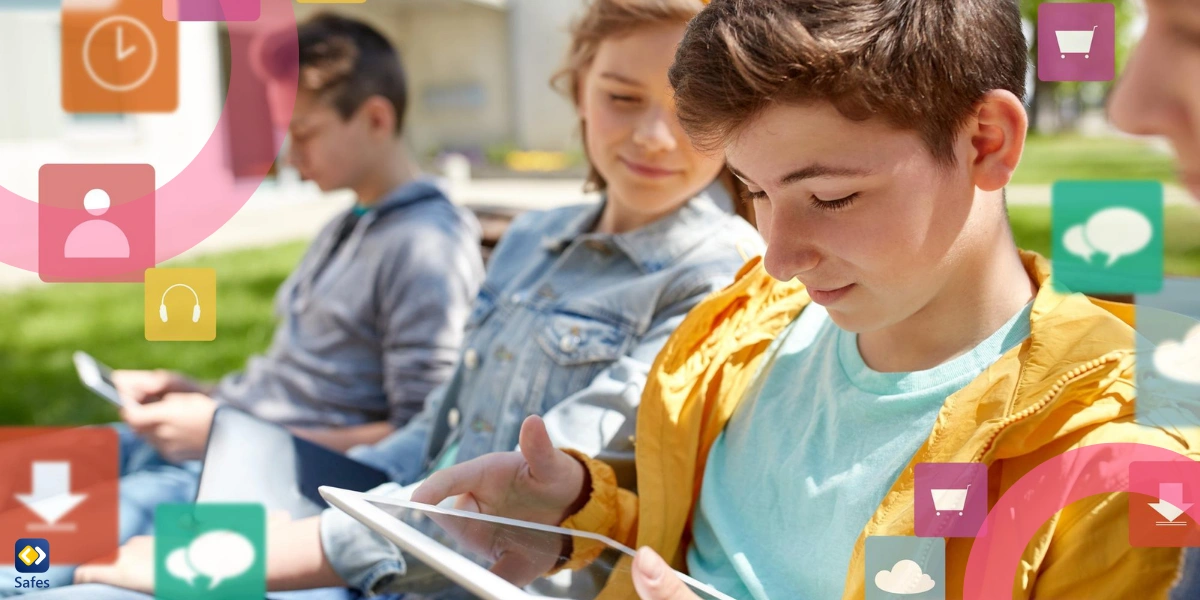
How to Minimize the Effects of Social Media on School Performance
Social media plays an integral role in the daily lives of teenagers, offering both advantages and challenges. While it fosters communication and creativity, its negative impacts on academic performance are well-documented. Let’s explore strategies parents, educators, and students can implement to reduce the adverse effects of social media on school performance and learn about social media safety for teens and how to use social media safely for children alike.
Set Clear Boundaries for Social Media Use
One of the most effective ways to minimize social media’s impact is by setting clear boundaries. Parents should work with their children to establish specific times when social media is off-limits, such as during homework, study periods, and family meals. These boundaries help prioritize academic responsibilities and foster healthier habits.
Encouraging device-free zones at home is another useful strategy. Creating spaces where phones and tablets are not allowed, like the dining room or study area, reduces distractions and promotes focus. For younger children, parents can enforce time limits using parental control apps to ensure they don’t exceed a healthy amount of screen time.
Communication is key to the success of these boundaries. Instead of imposing rules unilaterally, parents should discuss the importance of limiting social media use. Explaining how it impacts focus and academic success encourages teenagers to adopt these boundaries willingly, fostering a cooperative environment.
Promote Time Management Skills
Teaching students effective time management can greatly reduce social media’s negative effects on academics. By helping them create a balanced schedule that allocates time for studying, relaxation, and social media, parents empower their children to manage their responsibilities better.
Using tools like calendars or scheduling apps is beneficial. Parents can encourage their children to plan their day in advance, setting aside specific times for social media to avoid the urge to check it during productive hours. Apps like Focus@Will or Forest can also help block distractions and keep students on track.
Additionally, parents can lead by example. Demonstrating healthy habits, like keeping devices away during work or family time, reinforces the value of time management. When students see their parents using time wisely, they are more likely to emulate these behaviors in their academic lives.
Educate About Responsible Social Media Use
Education is critical in helping students understand the risks and rewards of social media. Parents and educators should have open discussions about its impact on mental health, privacy, and academic performance. By understanding these consequences, students are more likely to adopt mindful habits.
Workshops and digital literacy classes in schools can teach students how to balance social media with their academic obligations. These programs can include topics like avoiding multitasking while studying and recognizing the dangers of excessive screen time. Educators can also emphasize critical thinking skills, enabling students to differentiate between valuable and time-wasting content.
Parents should also stress the importance of self-regulation. Teaching teenagers how to monitor their usage and recognize when it interferes with their studies encourages accountability. Coupled with tools like app usage trackers, this education helps students develop the self-discipline needed for long-term success.
Leverage Technology to Monitor and Control Usage
Technology itself can be a solution for managing social media’s effects. Parental control apps like Safes Family offer robust features to monitor screen time, restrict usage during study hours, and provide insights into children’s digital habits. These tools ensure that students focus on academics without the constant allure of social media.
Parents can also use built-in features on devices, such as Screen Time on iPhones or Digital Wellbeing on Android phones, to track app usage. These features allow for setting app limits, blocking notifications during specific hours, and reviewing time spent on various platforms. These small adjustments can significantly improve focus and productivity.
Collaborating with children to customize these tools ensures compliance and reduces resistance. When teenagers are involved in setting limits, they are more likely to adhere to them, recognizing the benefits for their academic and personal growth.
Encourage Alternative Activities
One way to curb excessive social media use is by promoting alternative activities that engage students meaningfully. Encouraging participation in sports, music, art, or volunteer work provides a productive outlet for energy and creativity, reducing reliance on digital platforms.
Social activities like family outings or study groups can also divert attention away from social media. By fostering real-world connections and hobbies, parents help children build a balanced lifestyle that prioritizes offline experiences over online interactions.
Educational pursuits, such as joining science clubs, debate teams, or creative writing workshops, also give students purpose and direction. These activities not only enhance academic skills but also reduce idle time that might otherwise be spent scrolling through feeds.
Conclusion
Social media’s impact on school performance is multifaceted, offering both opportunities and challenges. While it can hinder time management, mental health, and academic focus, it also provides valuable educational resources and community support. Parents, educators, and students must work together to establish healthy boundaries and promote responsible social media use or the use of phones without social media. By fostering a balanced approach, students can harness the benefits of social media while minimizing its risks, paving the way for academic success and personal growth.
Looking for an effective way to manage your child’s social media use? Try Safes Family today! With features like screen time management, app monitoring, and detailed usage reports, Safes Family helps you create a balanced digital environment for your child, both on iOS and Android. Start your free trial now and take the first step toward healthier social media habits.
Your Child’s Online Safety Starts Here
Every parent today needs a solution to manage screen time and keep their child safe online.
Without the right tools, digital risks and excessive screen time can impact children's well-being. Safes helps parents set healthy boundaries, monitor activity, and protect kids from online dangers—all with an easy-to-use app.
Take control of your child’s digital world. Learn more about Safes or download the app to start your free trial today!
